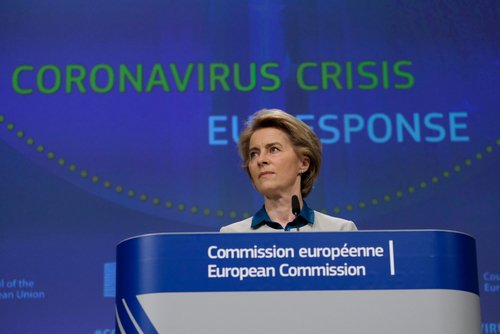Belgium, (Brussels Morning Newspaper) European Commission President Ursula von der Leyen noted that the Commission wants Western Balkans countries to join the bloc as soon as possible. Speaking at the Berlin Process Summit on Thursday, she reminded that EU enlargement was “back on the table” as a new methodology allows the bloc to unblock decisions.
Von der Leyen pointed out that the EU is planning to invest roughly 30 billion euro in Western Balkans, which is roughly one third of the region’s GDP.
She noted that the EC called on the EU Council to grant Bosnia and Herzegovina candidate status and added that accession negotiations are underway with other countries in the region.
Commenting on the energy crisis, von der Leyen stressed that the EU is “united in the goal of climate neutrality by 2050 and our climate targets by 2030.”
She described the EU as an “energy community” and reminded that its short-term goals include moving away from Russian energy imports, diversifying sources and reining in fuel prices.
EU’s energy support package
Von der Leyen announced plans to provide Western Balkans counties with 1 billion euro in grants as part of an energy support package, noting that it will come in two parts.
“The first part is 500 million euro in grants as a very immediate financial support for the six Western Balkan countries to put them in a position for the very short term to support vulnerable households and vulnerable businesses,” she pointed out.
The second part is for investments in energy infrastructure, including electricity and gas interconnectors, to integrate the region into the EU grid, von der Leyen added.
She stressed the importance of investing in renewable energy, expressing belief that it provides clean energy and creates good jobs.
Von der Leyen pointed out that the EU wants freedom of movement in the Western Balkans, noting that it will improve productivity as workers will be able to “tap their full potential.”
She expressed belief that all countries in the region should recognise each other’s professional qualifications and allow travel with national identity cards, concluding that this would “strengthen personal and cultural bonds between the people of the region.”
Sources: https://ec.europa.eu/commission/presscorner/detail/en/statement_22_6527




